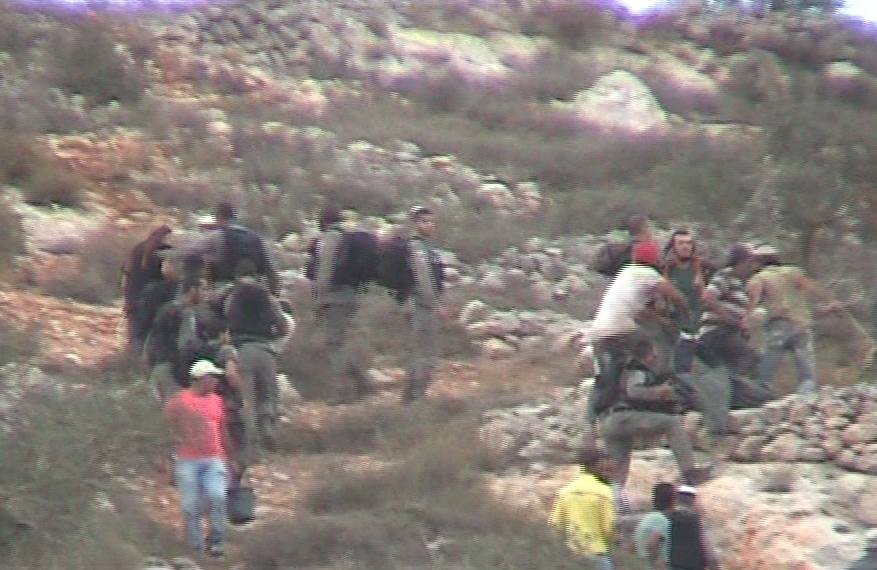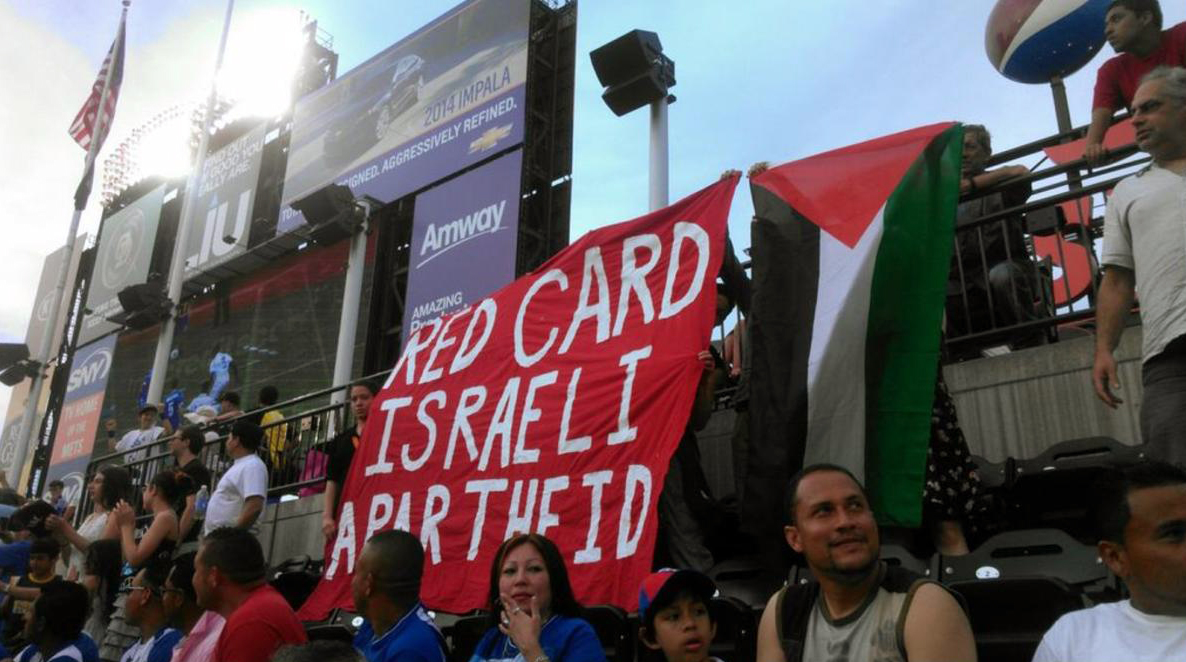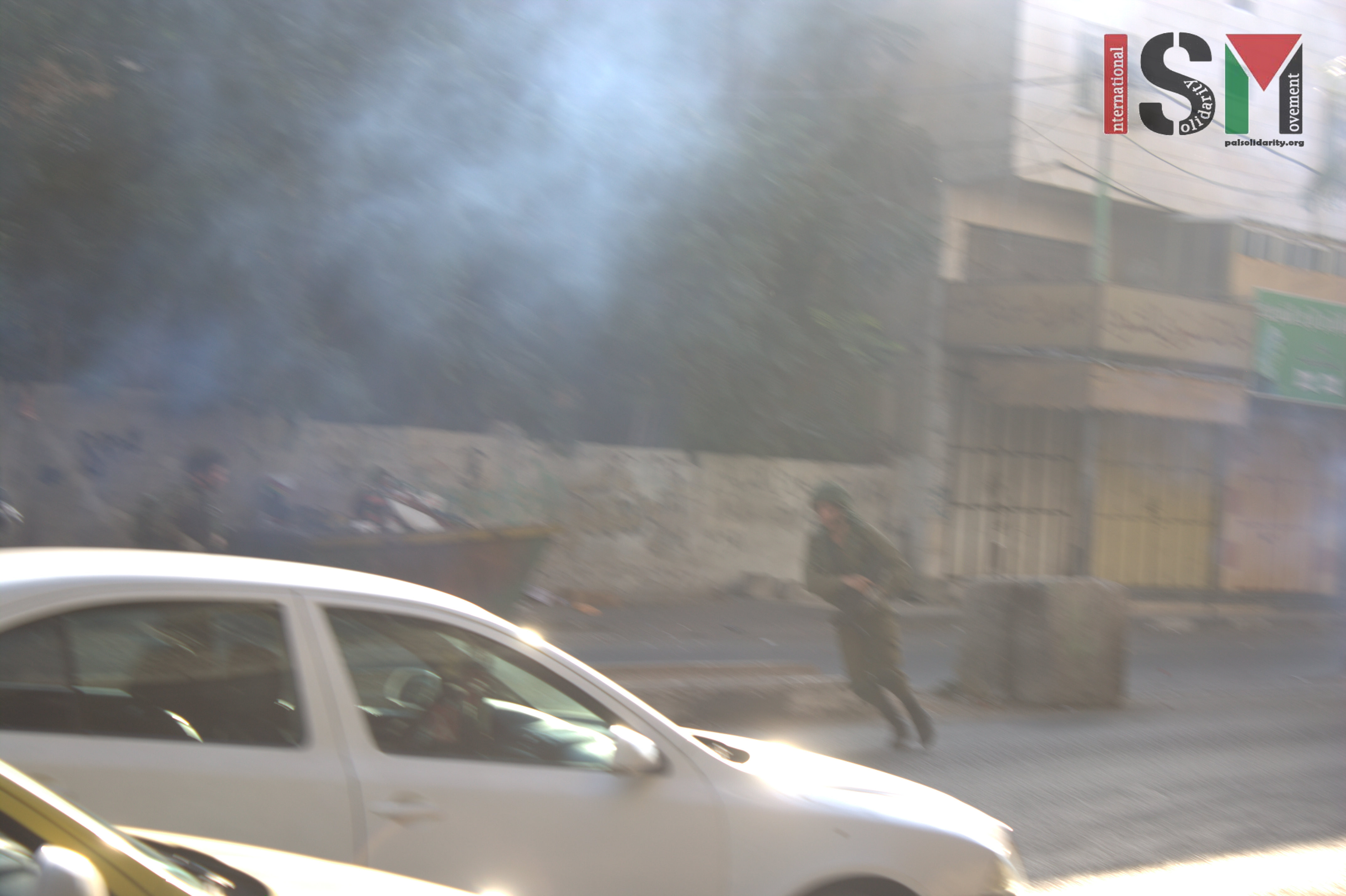Category: Features
-
Settlers of Yitzhar set fire to olive fields and attack farmers the next day
15th November 2017 | International Solidarity Movement, Nablus team | Huwarra, Occupied Palestine Israeli settlers of Yitzhar, set fires in two places in Palestinian olive fields around their illegal outposts, and attacked a group of farmers a day later, under the eyes of around 30 border police, present at the site. On Sunday 5 November,…
-
Moving the Goalposts: Delaying Palestinian Football Justice
Originally published by Visualizing Palestine For many years, the Israeli football association has given membership status to six teams that play in illegal settlements built on Palestinian land in the West Bank. This is in direct violation of FIFA’s rules, which state that permission is needed to play matches on another member’s territory. Instead of…
-
Israeli forces invade Hebrons commercial center on Friday
10th September 2017 | International Solidarity Movement, al-Khalil team | Hebron, occupied Palestine On Friday, 8th of September, large amounts of Israeli soldiers went into the H1 area of occupied Hebron, supposedly under full Palestinian control. The army used teargas and stun grenades at one of the main junctions in downtown Hebron, effecting the accessibility…



